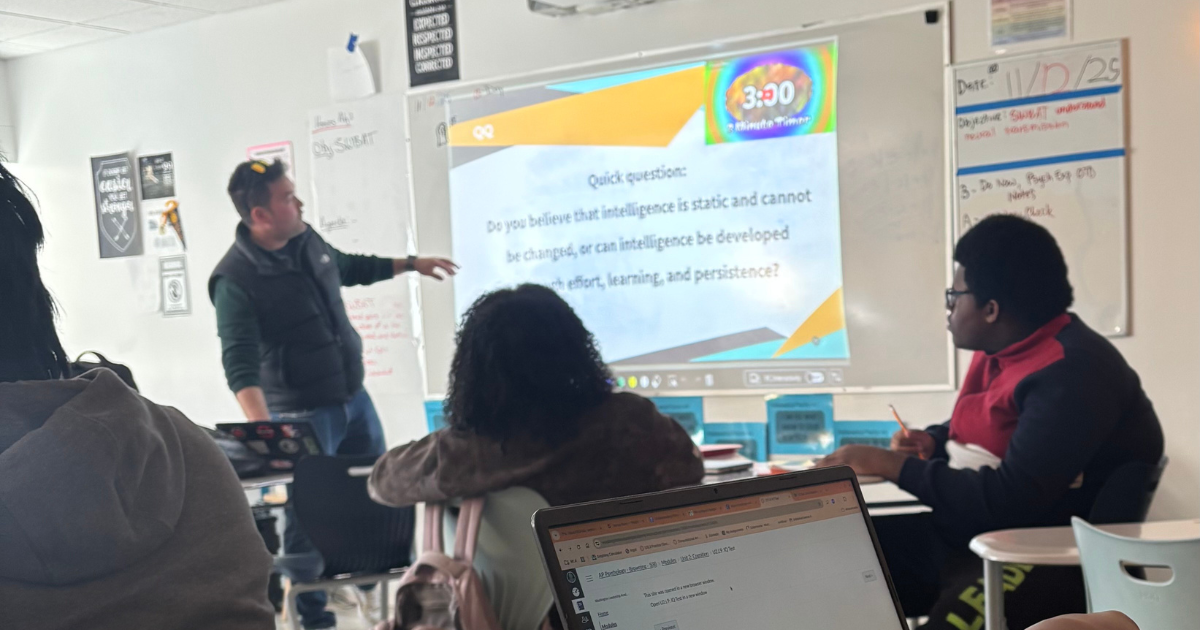Bringing AI Equity to DC’s Classrooms: How WLA is Leading the Way
In DC, conversations about education equity often focus on literacy, math, and college access. But a new frontier is already shaping the world our students will inherit: artificial intelligence. At Washington Leadership Academy (WLA), we believe students must not only learn to use these tools but also learn to lead with them. A WLA education is not just about staying current with the newest technology, but also about training students to think critically, act ethically, and lead confidently so they are prepared for whatever the future holds.
When students’ voices shape how technology is used, they design more equitable solutions while developing the leadership and problem-solving skills our communities urgently need. We also believe collaboration with like-minded schools can expand what’s possible for the students we serve.
That’s why WLA has launched a yearlong AI and EdTech Coaching Framework to ensure AI becomes part of everyday teaching and learning. Through structured coaching, professional learning, and student innovation opportunities, our plan rests on three pillars:
Our plan rests on three pillars:
Pilot and Scale: Teachers pilot and scale tools like MagicSchool, PlayLab, and Wayground (formerly Quizzizz) to strengthen instruction and personalize learning, especially for students with disabilities.
Infuse AI Literacy: Lessons embed AI literacy so students and teachers understand what AI is, how it works, and its ethical and social implications, particularly in Black and Brown communities, from South Memphis to Kenya..
Empower Students to Create and Lead: Students move from consumers to innovators by designing projects, training as AI Ambassadors, and presenting their work at events like our AI Build-a-Thon. Most importantly, they learn to ask hard questions, weigh ethical trade offs, and lead conversations about the role of technology in society.
This focus on empowerment matters because we cannot afford to let the digital divide deepen into an AI divide. Too often, Black, Brown, and differently-abled students are excluded from high-tech opportunities that unlock access to college and high-paying careers. When laptops were rolled out in schools, students were given devices but rarely trained on how to use them for meaningful learning. We can’t afford to repeat that mistake with AI. This time, we must equip students not just with tools but with the habits of mind and leadership skills to use technology wisely and well.
By June, WLA students will have presented their own AI projects, trained as Ambassadors, and contributed to an AI Playbook we hope to share with other DC schools. Until then, we invite schools across the District to join us, learn alongside us, and see what we’re building. This isn’t just about innovation for WLA, it’s about ensuring equity and empowerment in AI education across DC.
As the District considers how to prepare students for the future, our strategy is clear: advancing AI equity will help advance education equity. On November 18th from 9–11 AM, we will host Pathways to Progress: AI & Tech at WLA, where educators, families, and policy leaders can see classrooms in action, hear directly from students, and join the conversation about making AI equity a reality. Together, we can ensure that every student, not just a privileged few, gains the skills, voice, and confidence to thrive, and lead, in an AI-driven world.

